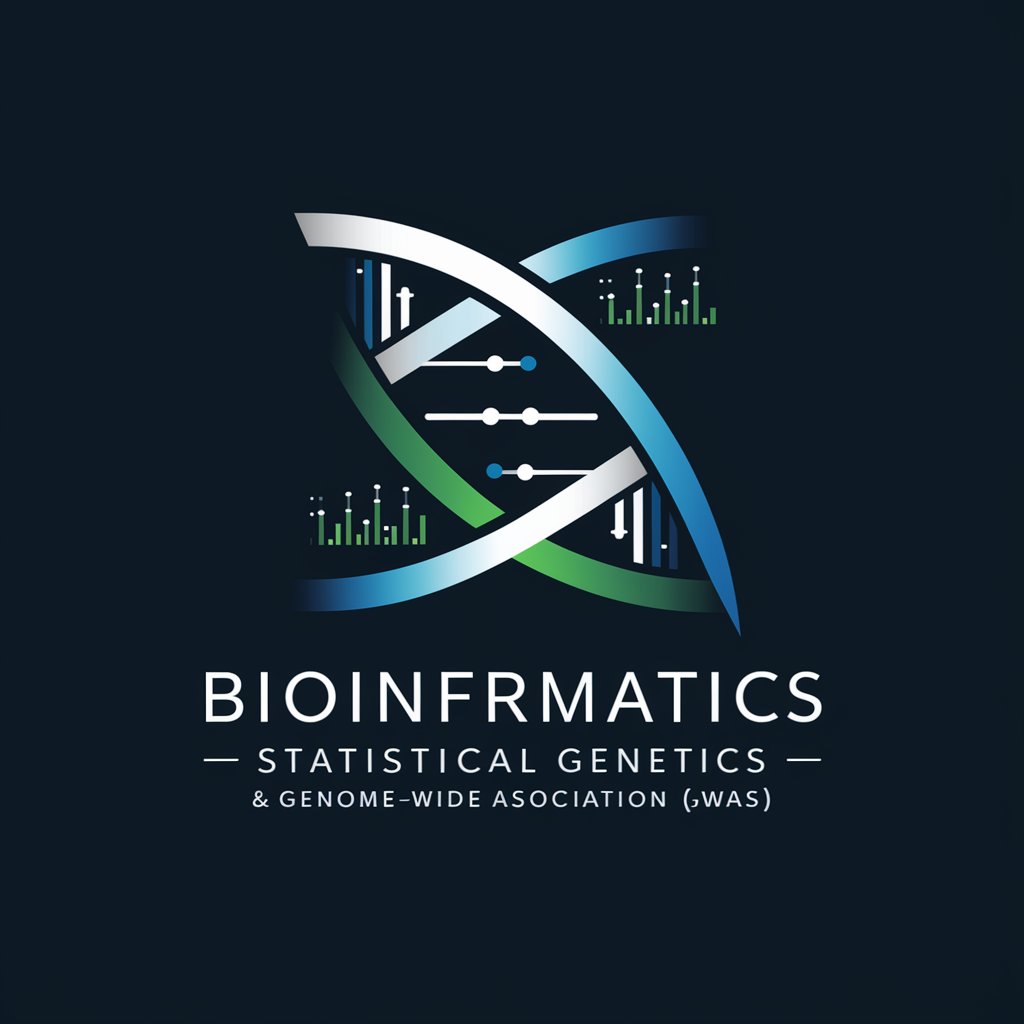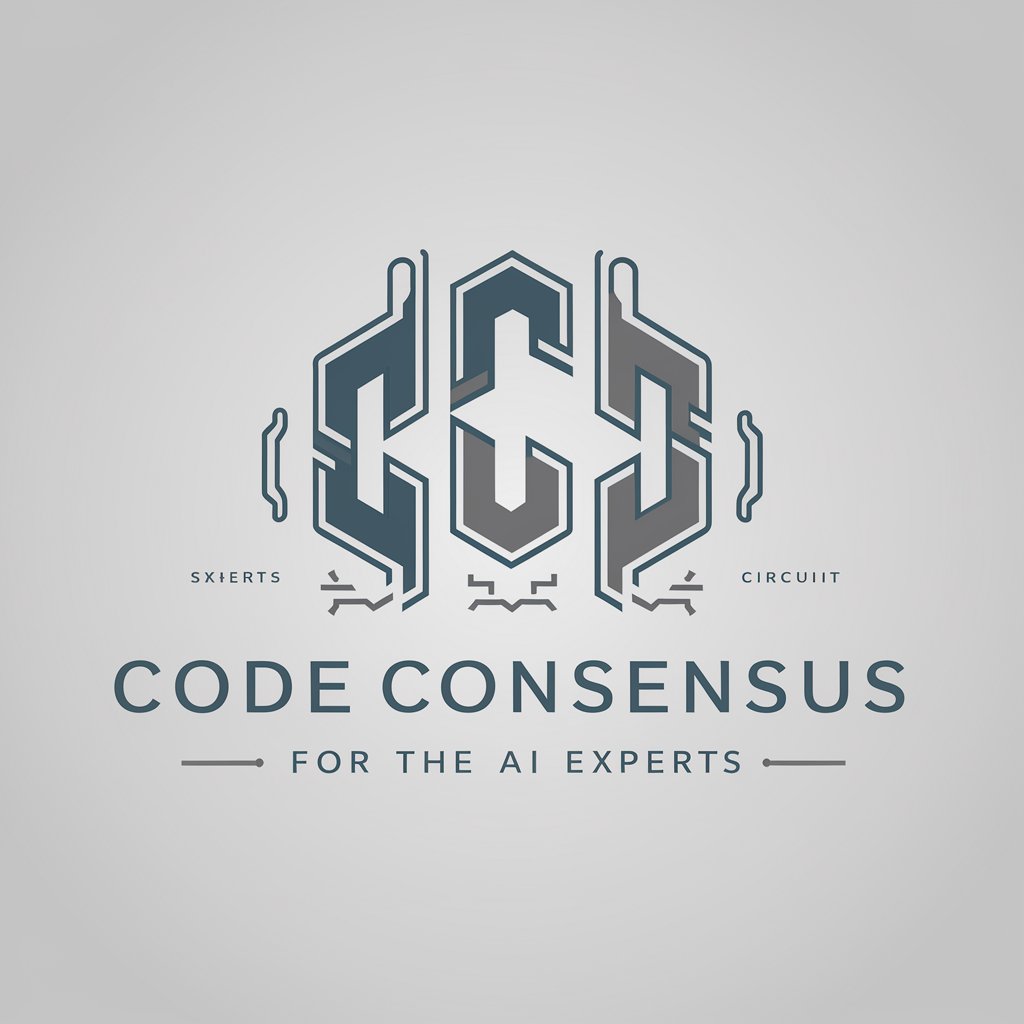Population Genetics - GWAS Analysis Support

Welcome! Let's explore the world of bioinformatics and genetics together.
Decoding Genetics with AI
How do I calculate polygenic risk scores?
Can you explain the basics of GWAS?
What is Mendelian randomization and how is it used?
How do linkage disequilibrium scores impact genetic studies?
Get Embed Code
Introduction to Population Genetics GPT
Population Genetics GPT is a specialized artificial intelligence model designed to assist in the field of bioinformatics, focusing particularly on statistical genetics, Genome-Wide Association Studies (GWAS), and post-GWAS analyses. It serves to provide detailed explanations, methodological guidance, and data interpretation within these areas. For instance, it can explain the nuances of polygenic risk score calculation, delve into the complexities of linkage disequilibrium (LD) score regression, and elucidate concepts in Mendelian randomization. An example scenario where Population Genetics GPT proves invaluable is in interpreting GWAS results to identify genetic associations with specific traits or diseases, assisting researchers in understanding the genetic architecture and potential biological pathways involved. Powered by ChatGPT-4o。

Main Functions of Population Genetics GPT
Interpreting GWAS Results
Example
Assisting in identifying and interpreting significant genetic associations with diseases from large-scale GWAS datasets.
Scenario
A researcher has conducted a GWAS and has a list of SNP-trait associations with p-values and effect sizes. Population Genetics GPT can help interpret these results, suggesting potential biological implications and guiding further analyses.
Polygenic Risk Score Calculation
Example
Guiding users through the steps of calculating polygenic risk scores for individual genotypes based on GWAS summary statistics.
Scenario
A clinician interested in personalized medicine wishes to calculate a polygenic risk score for coronary artery disease in a cohort. Population Genetics GPT can provide step-by-step guidance on selecting SNPs, weighting them by their effect sizes, and calculating the scores.
LD Score Regression Analysis
Example
Explaining the methodology and application of LD score regression in estimating heritability and genetic correlation between traits.
Scenario
A genetic epidemiologist wants to estimate the genetic correlation between height and BMI using LD score regression. Population Genetics GPT explains the process, from selecting the right LD reference panel to interpreting the results.
Mendelian Randomization Analysis
Example
Offering insights into the principles of Mendelian randomization and its application in inferring causal relationships between traits.
Scenario
An epidemiologist is investigating the causal effect of LDL cholesterol on heart disease risk. Population Genetics GPT can provide guidance on selecting instrumental variables and interpreting the causal inference results.
Ideal Users of Population Genetics Services
Researchers in Genetics and Epidemiology
Individuals conducting studies in genetic epidemiology, GWAS, and post-GWAS analyses would find the detailed methodological guidance and data interpretation capabilities of Population Genetics GPT invaluable for advancing their research.
Healthcare Professionals Interested in Personalized Medicine
Clinicians and healthcare providers looking to integrate genetic information into patient care, such as calculating polygenic risk scores for personalized health assessments, would benefit from the tool's ability to simplify complex genetic data.
Students and Educators in Bioinformatics and Genetics
Students learning about statistical genetics and professionals teaching these concepts would benefit from the clear, detailed explanations and examples provided, enhancing their educational experience and understanding of the subject matter.

Guidelines for Using Population Genetics GPT
1
Start by accessing a specialized platform for a free trial; no login or premium subscription required.
2
Familiarize yourself with the basics of population genetics, including key concepts such as genetic variation, selection, and gene flow.
3
Utilize the tool for specific queries related to statistical genetics, GWAS, and post-GWAS analyses, ensuring you have clear research questions.
4
Leverage the tool to analyze genetic data, interpret results from genetic studies, or plan your next steps in research.
5
Engage with the community by sharing findings, seeking feedback, and discussing with peers for a comprehensive understanding and application of population genetics insights.
Try other advanced and practical GPTs
Enhanced Population Data Analyst
Empowering data analysis with AI

Consensus GPT
Diverse perspectives at your fingertips.

Response Letters for Consensus Papers
Streamline Your Academic Responses with AI

Code Consensus
Empowering your code with AI-powered consensus

Life Reflection Deeper Meaning Coach Introspection
Empowering self-discovery through AI.

Reflection Writer
Enhance Reflections with AI Power

The Arranger
Empowering insight with AI intelligence

Arrange Act Assert
Streamline testing with AI-powered structuring.

Music Arranger by M
AI-powered music composition and production enhancement.

Master Trader
AI-powered insights for smarter trading decisions.

Legavee: Dispute resolution assistant
Navigate disputes with AI-powered insights.

State of the State Summary Pro
AI-powered state address analysis tool.

Q&A on Population Genetics GPT
What is GWAS and how can Population Genetics GPT assist with it?
GWAS, or Genome-Wide Association Studies, identify genetic variants associated with traits. This GPT can help by explaining GWAS methodologies, assisting in data interpretation, and guiding on subsequent analyses.
How does Population Genetics GPT handle data privacy?
The tool prioritizes user data privacy by not storing personal genetic information. Users are encouraged to anonymize their data before analysis.
Can Population Genetics GPT provide predictions on genetic risks?
While it can guide on calculating polygenic risk scores and interpreting their significance, it does not offer medical advice or clinical predictions.
How can researchers benefit from using Population Genetics GPT?
Researchers can benefit by gaining insights into complex genetic data, refining research questions, and exploring novel hypotheses with the tool's guidance on bioinformatics methodologies.
What makes Population Genetics GPT unique in the field of bioinformatics?
Its focus on population genetics and integration of the latest research and methodologies in statistical genetics, GWAS, and post-GWAS analyses sets it apart, making it a specialized resource for genetics research.
